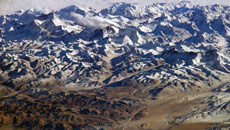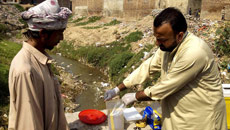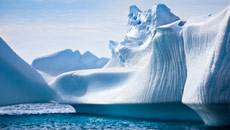If we continue doing what we are doing today to meet our energy demands, there will not be enough water in the world to quench the thirst of the world population by 2040, says a study.
The study, focusing on four different case studies in France, the United States, China and India, added that in most countries, electricity is the biggest source of water consumption because the power plants need cooling cycles in order to function.
"If we keep doing business as usual, we are facing an insurmountable water shortage - even if water was free, because it is not a matter of the price," said professor Benjamin Sovacool from Aarhus University in Denmark.
"There will no water by 2040 if we keep doing what we are doing today. There is no time to waste. We need to act now," Sovacool added.
It is a clash of competing necessities, between drinking water and energy demand, the study suggested.
The research also yielded the surprising finding that most power systems do not even register how much water is being used to keep the systems going.
"It is a huge problem that the electricity sector does not even realise how much water they actually consume. And together with the fact that we do not have unlimited water resources, it could lead to a serious crisis if nobody acts on it soon", Sovacool said.
The study that combined two new research results with projections about water shortage and the world population, showed that many areas of the world will no longer have access to clean drinking water even by 2020.
By 2020, about 30-40 percent of the world will have water scarcity, and according to the researchers, and climate change can make this even worse.
"This means that we will have to decide where we spend our water in the future. Do we want to spend it on keeping the power plants going or as drinking water? We do not have enough water to do both," Sovacool said.






